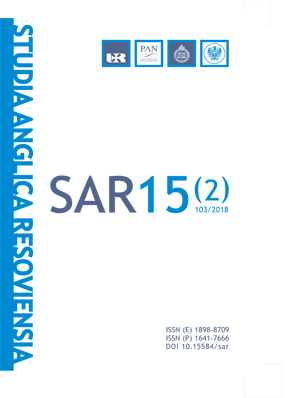Husband Status-related Names for Women ‘in Power’: A Corpus-based Study of Selected Suffixed Formations in Polish
DOI:
https://doi.org/10.15584/sar.2018.15.2.3Keywords:
corpus analysis, female professional names, the suffix -owa, the suffix -ina/-yna, maritonymic namesAbstract
Since the times of emancipation Polish speakers have faced the problem of forming names for working women. Although in most cases the -ka suffix has taken on this role, it is not suitable for deriving names for all kinds of professions across all the social strata. In the Polish hierarchical society, the derivation of names for women holding high positions in public life (especially in the Polish establishment) has always followed its own ‘elite’ rules. Male names (with a few exceptions declining according to the masculine paradigm) have been ‘frozen’ in their masculine form and used in reference to women regardless of grammatical case, receiving the name of paradigmatic ‘zero’. This, however, goes against the modern feminist ideals where equality between men and women is expressed not by giving the same name but a name by which the referent’s sex is marked overtly. Language evolves in such a way as to cater for the needs of the changing society by providing separate nomenclature for men and women. Since the -ka suffix strongly connotes with the working class, other solutions have been proposed. This paper will explore the use of the long-standing, husband status-related (‘maritonymic’) names, ending in -owa and -ina/-yna in this function. It is a corpus-based study of all contexts of usage of 13 husband status-related formations in Polish which are potential candidates for becoming names of women holding high positions. This strategy curiously diverges with the Slavic tradition of suffixation preserved in Polish rural dialects, which has spread imperceptibly over the language in the shape of colloquial names for women in question, encouraged also for colloquial use by Polish linguistic authorities (the Polish Language Council), leaving speakers trapped between two opposing tendencies each of them having its own reasons for demanding priority.Downloads
Download data is not yet available.
Downloads
Published
2018-12-15
How to Cite
Buńko, J. (2018). Husband Status-related Names for Women ‘in Power’: A Corpus-based Study of Selected Suffixed Formations in Polish. Studia Anglica Resoviensia, 15(2), 35–47. https://doi.org/10.15584/sar.2018.15.2.3
Issue
Section
Articles
License
Copyright (c) 2018 Studia Anglica Resoviensia

This work is licensed under a Creative Commons Attribution-NonCommercial 4.0 International License.

